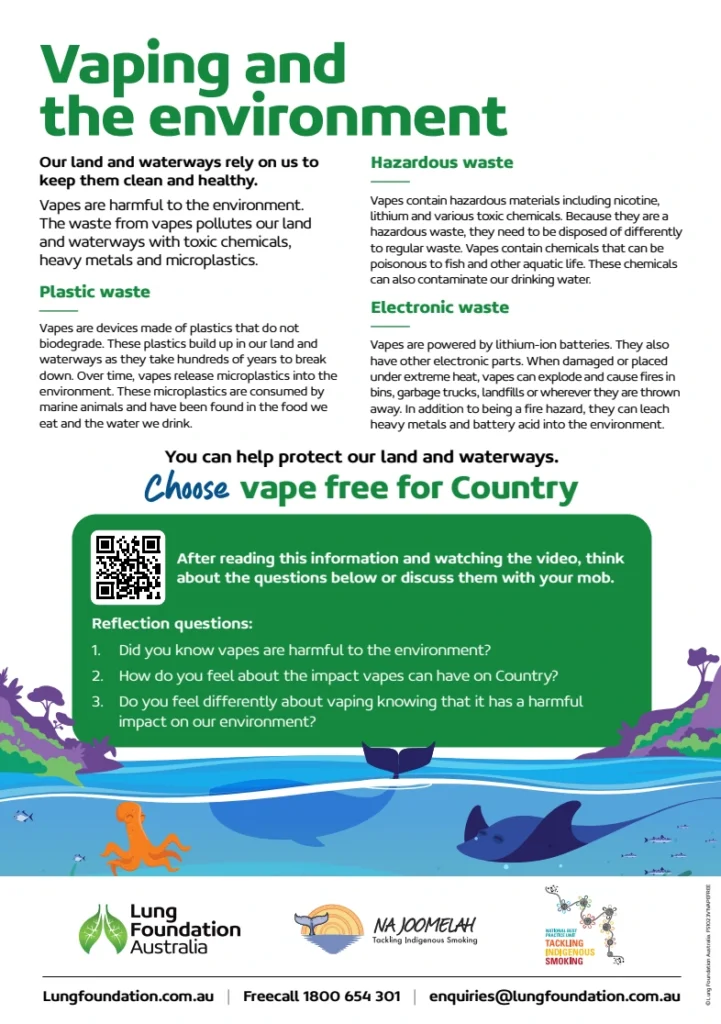Our land and waterways rely on us to keep them clean and healthy. Vapes are harmful to the environment, polluting our land and waterways with toxic chemicals, heavy metals, and microplastics.
Environmental Impact of Vapes
Vapes are made of plastics that do not biodegrade, taking hundreds of years to break down. Over time, they release microplastics into the environment, which are consumed by marine animals and found in the food we eat and the water we drink.
Vapes contain hazardous materials, including nicotine, lithium, and various toxic chemicals. These substances need to be disposed of differently from regular waste. Chemicals in vapes can be poisonous to fish and other aquatic life and can contaminate our drinking water.
Health Harms of Vaping
Vaping is harmful to your body, causing symptoms like vomiting, chest pain, mouth and airway irritation, and a racing heartbeat. Vapes contain over 200 toxic chemicals and flavourings that are dangerous to inhale. These chemicals are also used in products like cleaning agents, paint, and petrol.
Quitting vaping improves both mental and physical wellbeing. It helps reduce stress and anxiety, saves money, and keeps the environment clean.
Vapes contain nicotine, a highly addictive substance that alters brain pathways related to learning, stress, and self-control, making it difficult to quit.
Quitting Vaping
Most vapes contain nicotine which is very addictive. Repeated use of nicotine can change the pathways in the brain related to learning, stress and self control. This is why it can be difficult to quit, but a positive mindset, resources and support can make it easier.
Choosing to quit vaping is a positive step for your health and the environment. Inform your family and friends about your decision so they can support you. Reflect on how vaping negatively impacts your life, what you could buy with the money saved, and how to discuss quitting with others.
Choosing to be vape-free is beneficial for you, those around you, and the environment. Quitting vaping can improve your physical and mental wellbeing. Support services like Aboriginal Quitline and local Tackling Indigenous Smoking (TIS) teams are available to help you quit.
Was this page helpful?
Good job! Please give your positive feedback
How could we improve this post? Please Help us.
